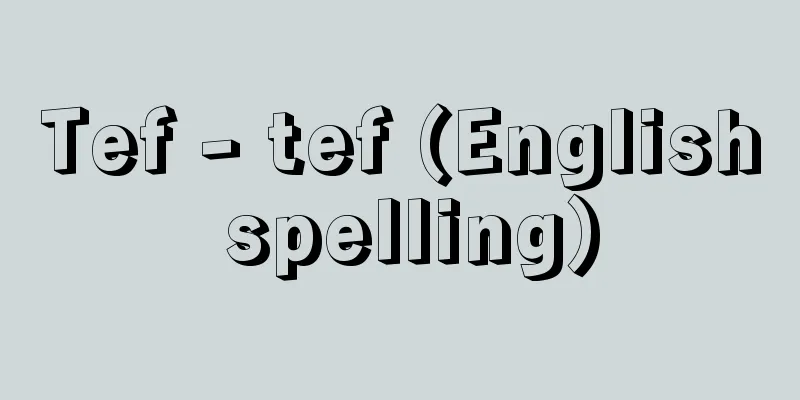Conversion - Tenko

|
(1) In the broad sense, it means a change from one ideology or belief to another. (2) In the narrow sense, it means a change in attitude by an individual or group that takes a liberal or democratic stance to one that oppresses anti-establishment sentiment or supports a nationalistic or militaristic reactionary regime. (3) In the narrowest sense, it refers to the act of communists in prewar Japan around 1935 abandoning their ideology and beliefs due to coercion and violence imposed by those in power. In the broad sense of (1), there are countless examples of this in history. In this case, the act of conversion itself is usually not evaluated as good or bad from the perspective of freedom of thought and belief. Therefore, conversion is the subject of research in the history of thought that involves an issue of a person's "way of life" or an ethical evaluation, but rather in the case of (2) or (3). Representative examples of the conversion to the type (2) are E. Burke of England and Hiroyuki Kato of Japan. Burke, like T. Paine, opposed the colonial oppression policies of the British government and Parliament and supported the colonial assemblies in the American independence issue. However, in response to the French Revolution, he wrote Reflections on the French Revolution (1790) in which he thoroughly criticized the French Revolution and Rousseau's theory of the social contract, which became its spiritual principle. Hiroyuki Kato wrote True Politics (1870) immediately after the Meiji Restoration, and together with Yukichi Fukuzawa and others, he criticized the Tokugawa feudal system under the theory of the social contract (theory of natural rights), and played a major role in the modernization of Japan. However, in the 1870s, he wrote A New Theory of Human Rights (1882) in which he criticized the Freedom and People's Rights Movement. What these two writers have in common is that they both rejected the social contract theory, which can be said to be the ideological principle of the modern civil revolution or modern democracy. In the mid-18th century, the Industrial Revolution arrived in England, and the number of small and medium-sized producers and the working class increased. They sought the expansion of the right to vote, and fought on the basis of the idea of natural rights, which states that humans are born with free and equal rights. Such political movements tended to gain momentum with the outbreak of the French Revolution, which was based on Rousseau's idea of natural rights and the theory of the social contract. Burke, an ideologue of the upper classes of citizens, feared this tendency and, by criticizing the ideological principles of the French Revolution, he seems to have taken the side of suppressing the struggle for the expansion of the right to vote in England. In Kato's case, he first used the Western theory of the social contract to criticize the Confucian morality that was the ideology of the Tokugawa Shogunate and feudal domain system, and suddenly gained the status of a progressive intellectual during the Meiji Enlightenment. However, when he later became a high-ranking official in the Meiji government, and in the Freedom and People's Rights Movement, which called for the destruction of clan-based politics centered on Satsuma and Choshu, civil rights advocates began to preach the theory of natural rights and demand political rights, he adopted a stance that criticized the theory of natural rights by invoking the theory of social evolution, such as "survival of the fittest" and "natural selection." In this light, the conversions of Burke and Kato can be seen as typical cases in which the content of their ideology shifted in a conservative and reactionary direction as a result of a change in their own political stance. As for (3), cases of conversion through coercion or violence, there are historical examples of conversions (conversions) of Christians, especially nonconformists, in Europe, and of Japanese Christians. However, in Japan, the word "conversion" took on special political and ethical meanings and became strongly recognized among people after the leaders of the (illegal) Japanese Communist Party, Sano Manabu and Nabeyama Sadachika (1901-79), who were in prison at the time, issued a statement of conversion (preaching the construction of a one-nation socialism based on the Emperor system and nationalism, and rejecting Comintern policies), which followed the mass conversion of more than 500 people. Before that, there were cases when Akamatsu Katsumaro advocated the dissolution of the Communist Party and left the party, and when Yamakawa Hitoshi and others advocated a "change in the direction of the proletarian movement" to avoid a direct struggle with the Emperor System, and these changes of direction were called conversions, but with Sano and Nabeyama's conversion statements, the word conversion came to be clearly associated with class betrayal against the vanguard party, the Communist Party, and the proletariat. In these cases, as they converted because they had succumbed to the violence of power, many of the converts were seized by a deep sense of frustration and withdrew from the front lines of political movements, although some even cooperated with the government and the military. After the Second World War, when the movement for democratization in Japan gained momentum and the Socialist Party and the Communist Party were legalized, the qualifications of leaders in the socialist movement were questioned according to the schema of non-converters versus converts. There was also a time when those who left the Communist Party for ideological or other reasons were labeled as converts. Needless to say, this is closely related to the unique circumstances of Japanese-style conversion during the harsh "winter period" before the war. However, after the war, as ideas of democracy and civil liberties developed, the view of conversion that condemns conversion on a personal and ethical level has gradually faded away. [Hiroshi Tanaka] "Joint Research: Conversion," edited by the Society for the Study of the Science of Thought (1959-62, Heibonsha), 3 volumes in total" ▽ "Conversion: The Meiji Restoration and the Shogunate's Retainers, by Kiyoshi Shimane (1969, Sanichi Shobo)" Source: Shogakukan Encyclopedia Nipponica About Encyclopedia Nipponica Information | Legend |
|
(1)広義には、ある思想・信条から他の思想・信条へと変化すること。(2)狭義には、自由主義的・民主主義的立場をとる個人あるいは集団が、反体制的立場を抑圧する立場とか、国家主義的・軍国主義的反動体制を支持する立場へと態度を変更すること。(3)最狭義には、昭和10年前後の戦前日本において、共産主義者たちが、権力側から加えられた強制・暴力によってその思想・信条を放棄した行為をさす。 (1)の広義の意味においては、その事例は歴史上枚挙にいとまがないほど日常的にみられる。この場合には、転向行為自体は、思想・信条の自由の観点からいって、別によいとか悪いとかいった価値評価はそこでは問題とされないのが普通である。したがって、転向が人間の「生き方」の問題あるいは倫理的価値評価を伴う思想史上の研究対象となるのは、(2)または(3)の場合であろう。 (2)の転向の代表的な事例としては、イギリスのE・バーク、日本の加藤弘之(ひろゆき)の場合が有名である。バークは、アメリカの独立問題に関しては、T・ペインと同じく、イギリス政府や議会の植民地抑圧政策に反対し、植民地議会を支持した。しかし、次のフランス革命に対しては、彼は『フランス革命に関する考察』(1790)を書いて、フランス革命とその精神原理となったルソーの社会契約説を徹底的に批判した。加藤弘之は、明治維新直後には『真政大意』(1870)を書いて、社会契約説(天賦人権論)をかざして福沢諭吉(ゆきち)らとともに徳川封建制を批判し、日本の近代化に大きな役割を果たした。しかし、明治10年代に入ってからは、『人権新説』(1882)を書いて、自由民権運動を批判している。この両者に共通していることは、いずれも、近代市民革命あるいは近代民主主義の思想原理ともいうべき社会契約理論を否定している点である。18世紀中葉期、イギリスにおいては産業革命の時代が到来し、中小生産者層や労働者階級の数が増大した。彼らは、選挙権の拡大を求め、人間は生まれながらにして自由で平等の権利をもつという自然権思想を掲げて闘った。こうした政治運動は、ルソーの自然権思想や社会契約説を基礎にしたフランス革命の勃発(ぼっぱつ)によってますます高揚する傾向にあった。上層市民層のイデオローグであったバークは、こうした傾向を恐れ、フランス革命の思想原理を批判することによって、イギリスにおける選挙権拡大闘争を抑制する側に回ったものと思われる。加藤の場合は、最初、西欧の社会契約論によって、徳川幕藩体制のイデオロギーであった儒教道徳を批判し、一躍、明治啓蒙(けいもう)期における進歩的知識人の地位を獲得した。しかし、彼自身、のちに明治政府の高級官吏の地位につくと、薩長(さっちょう)を中心とする藩閥政治打破を唱える自由民権運動のなかで、民権論者たちが天賦人権論を唱えて政治的権利を要求するや、「適者生存」「自然淘汰(とうた)」という社会進化論を援用して天賦人権論を批判する立場をとるようになった。このようにみるとき、バークや加藤の転向は、彼ら自身の政治的立場の変化によって、その思想内容を保守的・反動的な方向に変更していった典型的事例であるということができよう。 次に、(3)の強制・暴力による転向の場合であるが、これについても、歴史上、ヨーロッパにおけるキリスト教徒とくに非国教徒の転向(回心)や、日本のキリシタンの転向の事例などがみられる。しかし、日本において、転向ということばが特別な政治的意味や倫理的意味を帯びて人々の間で強く意識されるようになったのは、1933年(昭和8)6月9日に当時獄中にあった日本共産党(非合法)の指導者佐野学(まなぶ)、鍋山貞親(なべやまさだちか)(1901―79)が転向声明(天皇制と民族主義にたつ一国社会主義の建設を説きコミンテルンの方針を拒否)を出し、それに続いて500人以上に上る大量の集団転向が行われて以後のことである。それ以前にも、赤松克麿(かつまろ)が共産党解党論を唱えて脱党したり、山川均(ひとし)らが「無産階級運動の方向転換」を唱えて天皇制とまっこうから対決する闘争を回避した事例があり、こうした方向転換が転向とよばれてきたが、佐野・鍋山の転向声明によって、転向という語は、前衛政党たる共産党やプロレタリアートに対する階級的裏切り行為と明確に結び付けてとらえられるようになった。この場合は、権力の暴力に屈して転向したという経緯もあって、転向者の多くは、それ以後、深い挫折(ざせつ)感にとらわれ、政治運動の第一線から退いていったが、なかには政府や軍部に協力する者もいた。 第二次世界大戦後、日本民主化の運動が高揚し、社会党や共産党が合法化されると、社会主義運動のリーダーたちの資格をめぐって、非転向者対転向者というシェーマによってその優劣が問われるような事態がみられた。また思想的理由やその他の理由によって共産党を離れた者に対しても転向者というレッテルが貼(は)られた時期もあった。こうしたことは、戦前の厳しい「冬の時代」における日本型転向の特殊事情と深い関係があることはいうまでもない。 しかし、戦後、民主主義や市民的自由の思想が発展していくなかで、転向を人格的・倫理的次元において断罪するような転向観はしだいにその影を潜めつつある。 [田中 浩] 『思想の科学研究会編『共同研究 転向』全3巻(1959~62・平凡社)』▽『しまねきよし著『転向――明治維新と幕臣』(1969・三一書房)』 出典 小学館 日本大百科全書(ニッポニカ)日本大百科全書(ニッポニカ)について 情報 | 凡例 |
<<: Heavenly Creation - Heavenly Monster
Recommend
Adana Plain - Adanaheiya
...Since the 7th century, it has been a disputed ...
Winter training - Kangeiko
Training in martial arts and other arts during th...
Nagasunehiko
A local lord who rebelled against Emperor Jimmu d...
Serovo
…The third period of the Neolithic chronology pro...
Counting Song - Counting Song
A type of folk song sung in numerical order starti...
Mechanical weathering
…In such cases, rocks do not change their origina...
Akebono cedar - Akebono sugi
→Metasequoia Source : Heibonsha Encyclopedia About...
Inaw
〘Noun〙 (inau) ⸨Inao ⸩ One of the tools used by the...
Scorpionida
...A general term for arthropods in the order Sco...
Motel - motel (English spelling)
A type of lodging facility that originated in the...
Hayato Osumi
〘Noun〙 In ancient times, the Hayato people lived i...
Thermal expansion
The phenomenon in which the volume of an object i...
Diplomatic privileges
Under international law, diplomatic missions and ...
Noeggerathiopsis
... The Gondwana continent is characterized by th...
Kitto - Kitto
…It is widely distributed from central Honshu sou...


![Nankan [town] - Nankan](/upload/images/67cc697a50447.webp)






![Etawa [seed] - Etawa](/upload/images/67cfa1e401576.webp)